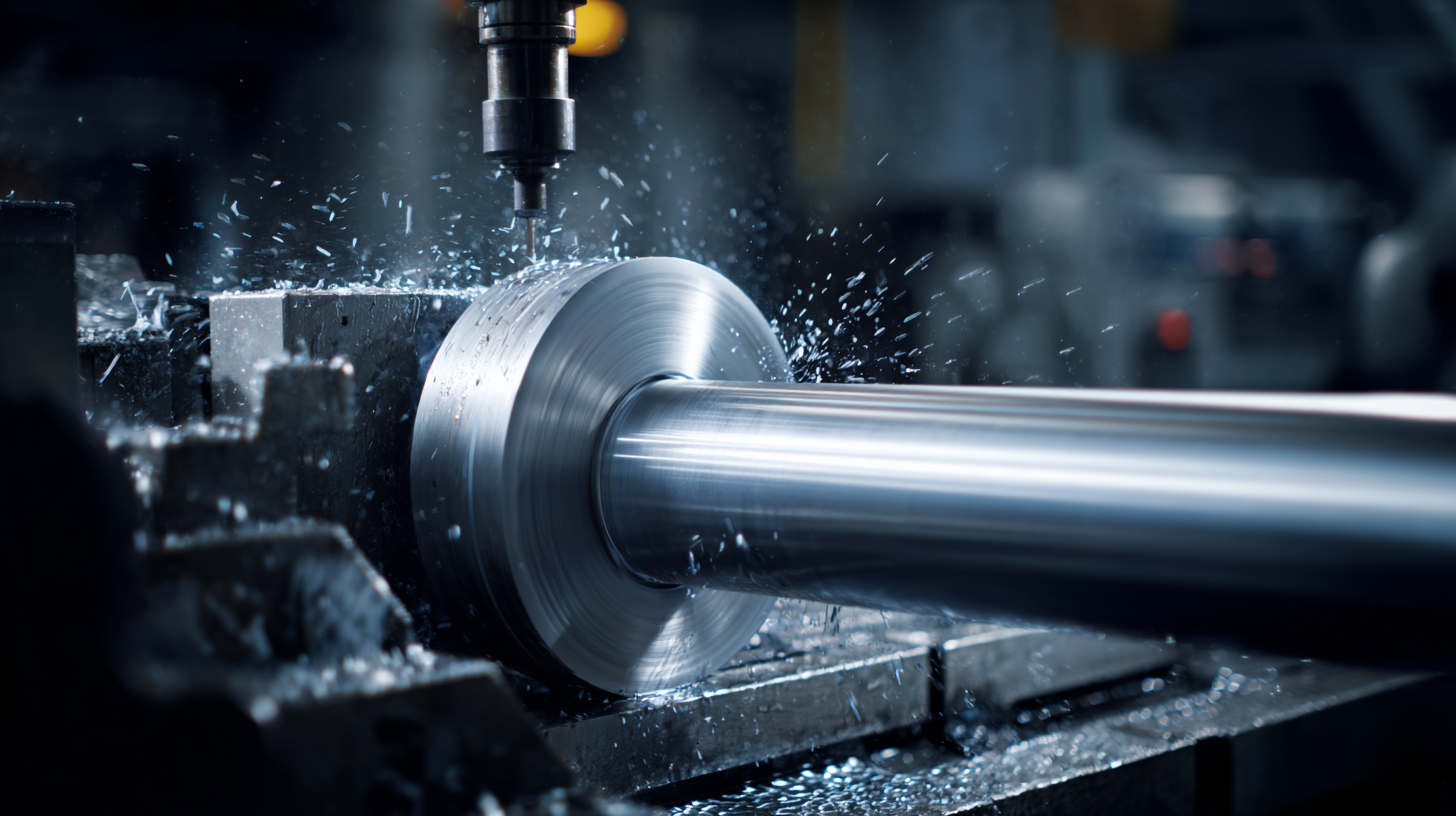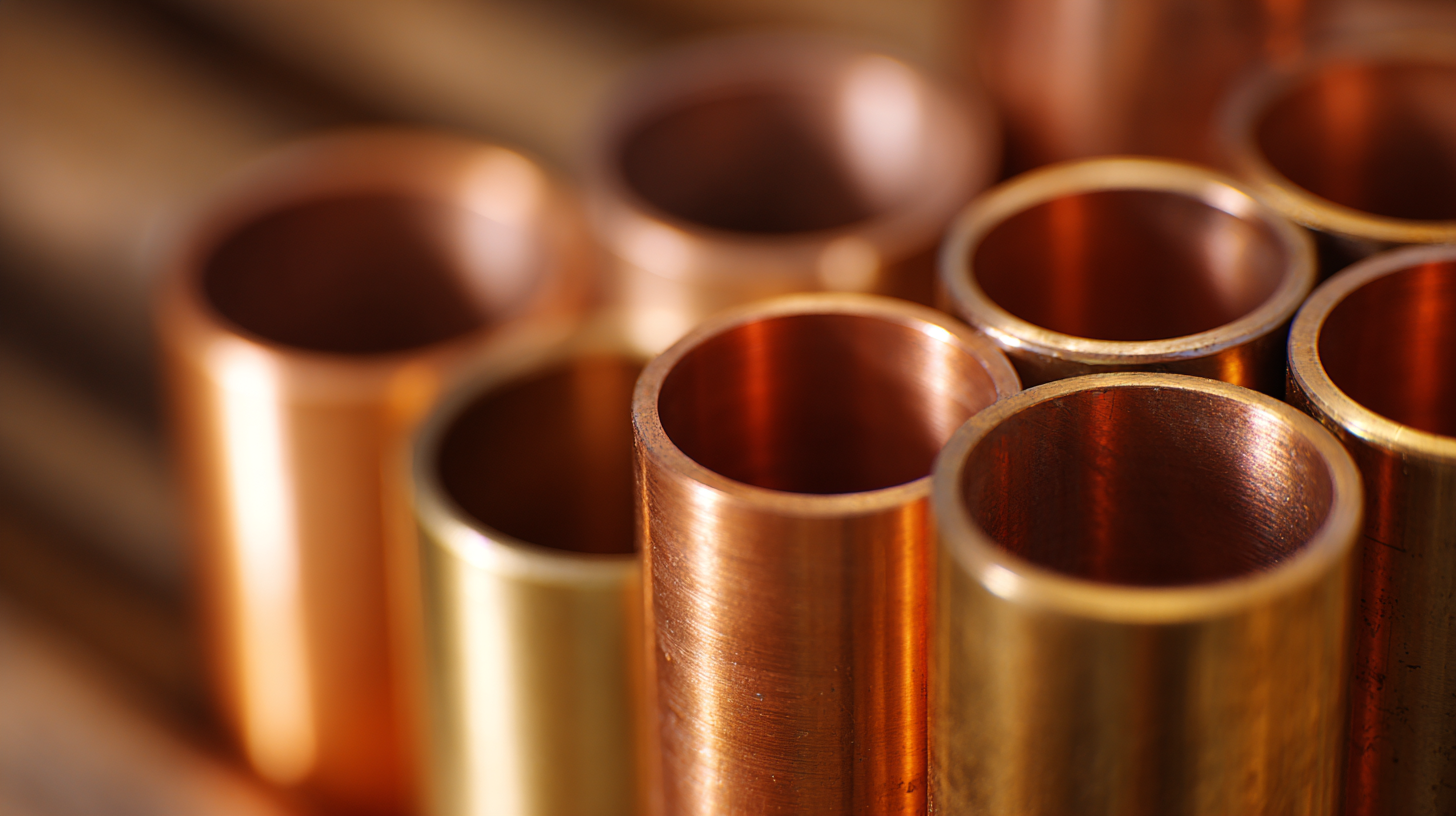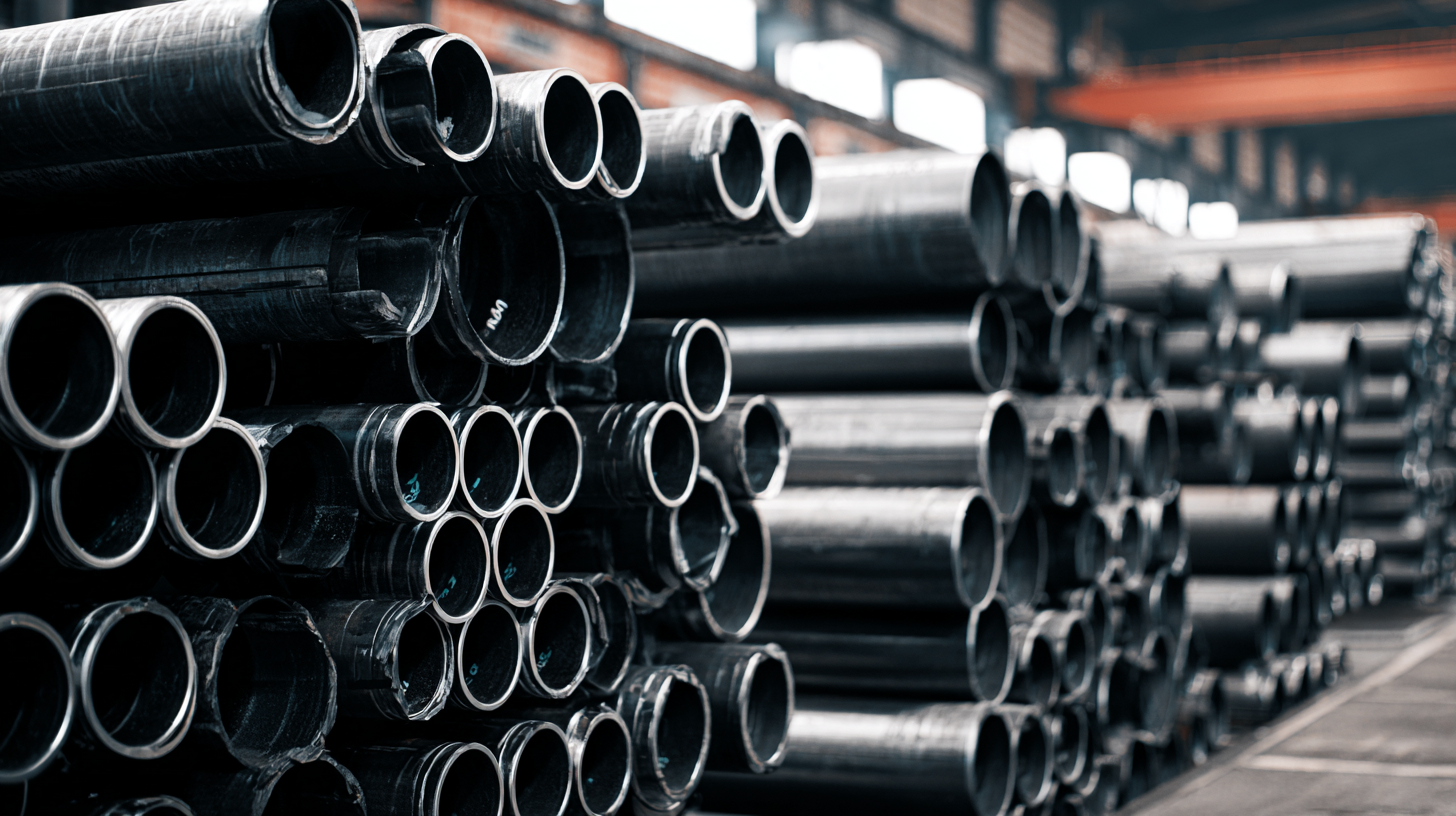In today's competitive marketplace, selecting the best cylinder manufacturing partner is crucial for businesses aiming to optimize their operations and enhance product quality. According to a recent report by MarketsandMarkets, the global cylinder manufacturing market is projected to reach USD 100 billion by 2025, reflecting a compound annual growth rate (CAGR) of 5.3% from 2020 to 2025. This growth is driven by increasing demand across various sectors, including automotive, aerospace, and industrial machinery. As companies strive to improve efficiency and reduce costs, understanding the key strategies for selecting a reliable cylinder manufacturing vendor has never been more important. By leveraging industry insights and data, businesses can make informed decisions that not only fulfill their specific needs but also contribute to long-term sustainability and success.

Identifying your business requirements for cylinder manufacturing is a crucial first step to ensure your product’s success. Understanding the specific application for the cylinders you need will help streamline your sourcing process. Consider factors such as the material requirements, temperature tolerance, and any pressure specifications. This initial assessment directly affects your choices regarding suppliers and the quality of the final product.
Tip: Create a detailed list of specifications that outlines the intended use of the cylinders and any regulatory standards that must be met. This will serve as a guide during evaluation and negotiations with potential manufacturers.
Furthermore, it's essential to consider the scalability of the manufacturer. If your business grows, will they be able to accommodate increased orders, or provide customization options if needed? A reliable partner should be able to pivot with your business demands and provide timely support.
Tip: Request samples and conduct thorough assessments of prospective manufacturers’ capabilities. This step not only helps to ascertain the quality but also builds a relationship that can lead to better collaboration in the future.
When sourcing cylinders for your business, it's crucial to understand the various types available and their specific applications. Cylinders are widely used in industries such as manufacturing, automotive, and healthcare, each requiring particular specifications. According to a report by MarketsandMarkets, the global cylinder market is projected to reach $800 million by 2025, driven by advancements in automation and increasing demand for industrial applications.
Tip: Always consider the material of the cylinder—steel, aluminum, or composite—as it impacts durability and performance. For example, aluminum cylinders are lighter and often used in portable applications, while steel is preferred for high-pressure situations.
Different cylinders serve distinct purposes; hydraulic and pneumatic cylinders, for instance, are vital in machinery operations. Hydraulic cylinders deliver power through pressurized fluids, commonly employed in construction equipment, while pneumatic cylinders utilize compressed air to create motion, making them ideal for packaging machinery. A report by ResearchAndMarkets highlights the rise in pneumatic cylinder adoption due to their efficiency in production lines, expected to grow by 6% annually through 2026.
Tip: Evaluate the application needs and the environment where the cylinders will operate. Understanding these factors can significantly influence your decision and enhance operational efficiency.
When it comes to sourcing cylinder manufacturing for your business, evaluating potential manufacturers is critical. Start by assessing their experience and expertise in the industry. A manufacturer with a proven track record in creating high-quality cylinders tailored to specific applications can ensure you receive a product that meets your standards. Additionally, consider their production capabilities, as well as their ability to scale operations based on your business needs.
Tips: Always check for certifications that validate a manufacturer's adherence to safety and quality standards. This could include ISO certifications or industry-specific approvals which reassure you of their operational excellence.
Another vital criterion to consider is the manufacturer's customer service and support. Effective communication and responsiveness can significantly impact your project's progress. Ensure that they offer reliable post-production support and are willing to collaborate closely with you throughout the process.
Tips: Look for manufacturers who provide a dedicated account manager to address your concerns promptly and facilitate a smoother working relationship. This can enhance the efficiency of your supply chain and ultimately contribute to your business success.
| Criteria | Importance Level (1-5) | Evaluation Method | Sample Rating |
|---|---|---|---|
| Quality Assurance | 5 | Certifications, audits, and customer feedback | 4.8 |
| Production Capacity | 4 | Manufacturing capabilities and lead times | 4.2 |
| Cost Competitiveness | 5 | Quotes and market comparison | 4.5 |
| Customer Service | 4 | Response time and support quality | 4.0 |
| Customization Options | 3 | Flexibility in product specifications | 4.3 |
| Sustainability Practices | 3 | Environmental certifications and practices | 4.1 |
 Quality control is a critical component in the manufacturing of cylinders, particularly in industries where safety and performance are paramount. According to a report by the National Institute of Standards and Technology (NIST), quality assurance in manufacturing can reduce defects by up to 60%. This reduction directly impacts a company’s bottom line, as less rework and waste lead to cost savings and improved operational efficiency. In the context of cylinder production, rigorous quality control processes ensure that each cylinder meets strict specifications for pressure, durability, and dimensional accuracy.
Quality control is a critical component in the manufacturing of cylinders, particularly in industries where safety and performance are paramount. According to a report by the National Institute of Standards and Technology (NIST), quality assurance in manufacturing can reduce defects by up to 60%. This reduction directly impacts a company’s bottom line, as less rework and waste lead to cost savings and improved operational efficiency. In the context of cylinder production, rigorous quality control processes ensure that each cylinder meets strict specifications for pressure, durability, and dimensional accuracy.
Furthermore, the International Organization for Standardization (ISO) emphasizes that adherence to quality management standards can enhance customer satisfaction, which is especially crucial in highly regulated sectors like aerospace and automotive. A study conducted by the American Society for Quality (ASQ) found that companies that implement robust quality control measures reported a 25% increase in customer retention rates. Such statistics underscore the importance of partnering with cylinder manufacturers who prioritize quality control, thereby safeguarding against potential failures and ensuring the reliability of their products in critical applications.
When sourcing cylinder manufacturing for your business, finding the right balance between quality and budget is crucial. High-quality cylinders can improve performance and longevity, ultimately saving costs in the long run. However, it’s essential to navigate the cost considerations to ensure that you do not compromise on quality while staying within your financial limits.
**Tip:** One effective approach is to conduct thorough market research to compare prices and quality from different manufacturers. Request samples to evaluate the material quality and ensure that their production standards align with your requirements. Additionally, don’t hesitate to negotiate prices and explore bulk ordering options, as many manufacturers offer discounts for larger quantities.
**Tip:** Another key factor to consider is the total cost of ownership. Instead of just focusing on the upfront cost, factor in maintenance, warranty, and replacement costs over time. Quality manufacturers often provide better warranty coverage, which can be a significant advantage. Assessing these elements will help you make an informed decision, ensuring that you invest wisely without compromising on the quality of the products you rely on.
